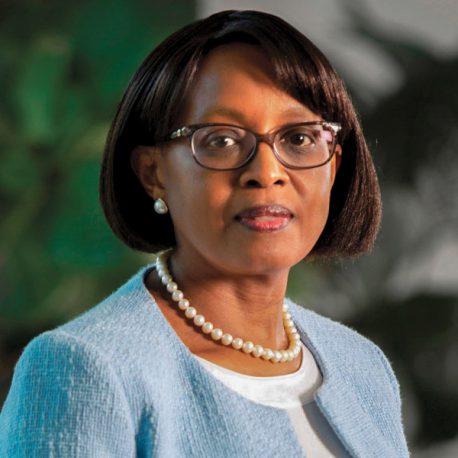
WHO Regional Director for Africa, Dr Matshidiso Moeti said on Monday that three years after the COVID-19 epidemic, social isolation, dread of sickness, death, and tight socioeconomic situations had contributed to an estimated 25% global spike in depression and anxiety.
According to WHO, approximately 116 million Africans were believed to be dealing with mental health issues prior to the epidemic.
In a message to mark World Mental Health Day, themed “Make Mental Health and Wellbeing for All a Global Priority,” WHO Regional Director for Africa, Dr Matshidiso Moeti, expressed concern about suicide rates, as well as the exponential rates of alcohol use and abuse among adolescents as young as 13 years old.
Every year on 10 October, the day is observed to raise attention to Africa’s significant and growing burden of mental health disorders, with children and adolescents bearing the brunt of the burden.
“We urgently need to tighten regulatory systems to address the gaps that allow such young people to easily get alcohol, contributing to heavy episodic drinking rates as high as 80% among youths aged 15 to 19,” Moeti added.
The circumstance, Dr Matshidiso Moeti endangers their education while also laying the groundwork for a lifetime of alcohol misuse and the associated risks of noncommunicable and other connected disorders.
Moeti said: “Inadequate funding for mental health remains the most significant impediment to efforts to increase Africa’s mental health workforce.”
”Currently, there are less than two mental health workers for every 100,000 individuals, with the bulk of them being psychiatric nurses and mental health nursing assistants.”
With scant resources concentrated in large urban mental institutions, Moeti pointed out that those in community and primary care are critically neglected.
”For example, whereas two-thirds of Member States report having guidelines for integrating mental health into primary care, only 11% provide pharmaceutical and psychosocial therapies at this level,” Moeti said.
It is encouraging that up to 82% of our Member States, Moeti revealed receive training on how to handle mental health issues in primary care, with up to 74% stating that specialists are involved in providing adequate training and supervision to primary health care providers.
African governments have also made some headway in increasing mental health funding to 46 US cents per person.
”However, this is still well below the minimum US$2 per person, and mental health is not covered by national health insurance plans,” she said.
You can read more of such stories at Credible News
- Enugu Police Officers Killed By Gunmen Who Set Fire To The Station
- Meet the Nigerian King Who Chose Suicide Instead of Bowing to Queen Elizabeth
To address the challenge, Moeti stated that member states must follow through on pledges made at the Regional Committee in August 2022, when they supported the Framework to Implement the Comprehensive Global Action Plan 2013–2023 in the WHO African Region.
She stated that the major paper shows the continent’s serious deficit of mental health services and makes suggestions for key measures by Member States.
Moeti said: “The establishment of Special Initiative for Mental Health frameworks by Ghana and Zimbabwe is one of the developments in which Member States can be proud.” The goal of WHO training is to strengthen relevant services at lower levels of care.
“WHO in the African Region also supports task-sharing and mental health integration into multisectoral programmes in Burkina Faso, Ethiopia, Ghana, Niger, Nigeria, and Mali.”
Collaborative tuberculosis and mental health programmes in Ghana and Kenya, as well as joint Neglected Tropical Diseases and mental health activities in Nigeria, are two examples.
In addition, Moeti added that Kenya, Uganda, and Zimbabwe have received assistance in completing mental health investment cases.
According to Moeti, these give a solid foundation for arguing for additional investment in this underserved element of our healthcare systems.
To move continental efforts toward fair access to mental, neurological, and substance misuse treatment forward,
She asked Member States to make the Framework for Implementing the Comprehensive Mental Health Action Plan in the WHO African Region a priority.
Moeti stated that countries must boost mental health and psychosocial response in humanitarian catastrophes, such as COVID-19 and Ebola, which have a substantial detrimental impact on school-age children and our healthcare staff.
Any successful approach must include mental health and psychological support.
She asked countries to commit to increasing the value of mental health, changing the conditions that harm it, and strengthening care systems in order to make mental health care available to all Africans.
You can read more of such stories at Credible News and The Cheer News





